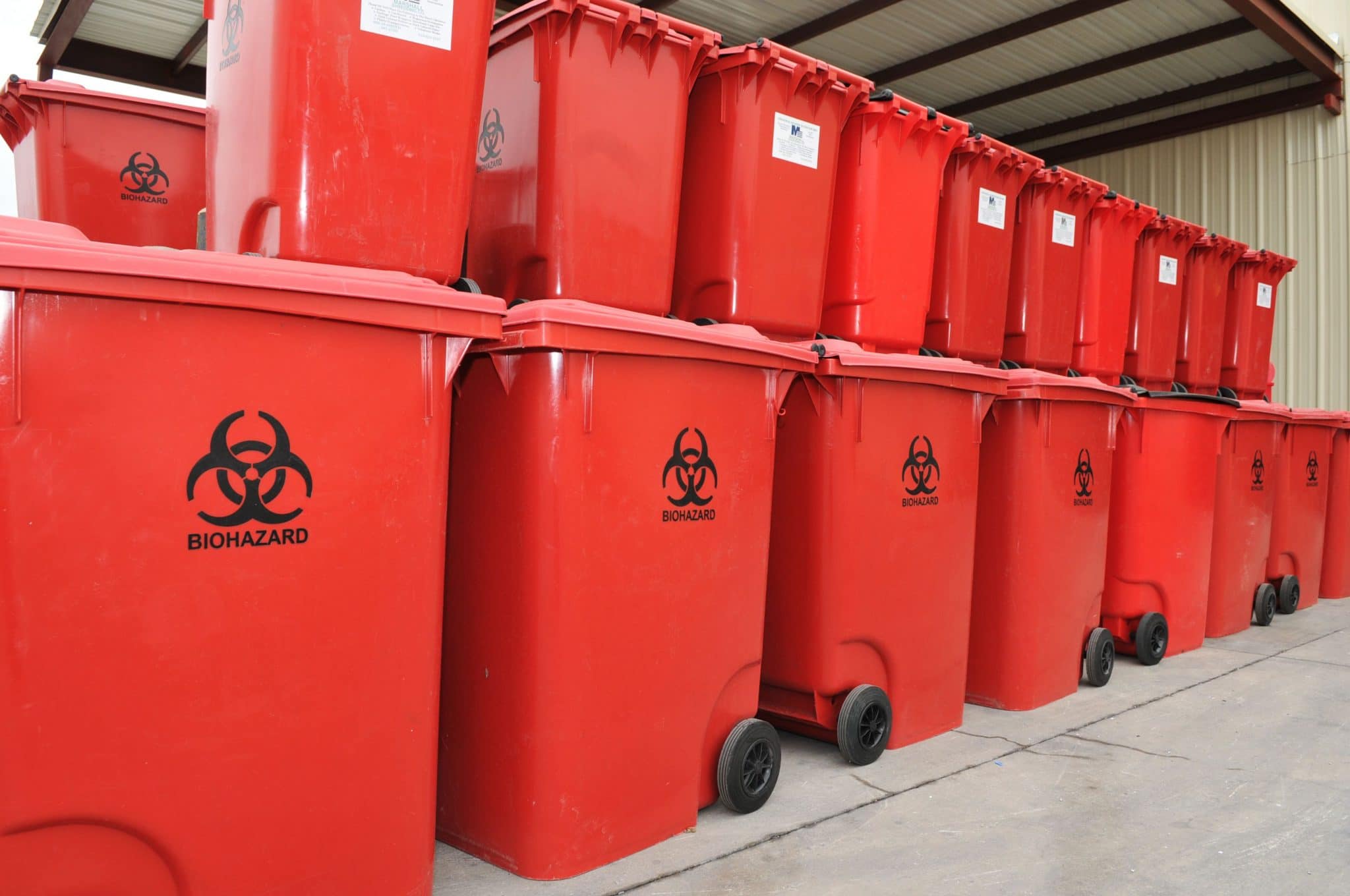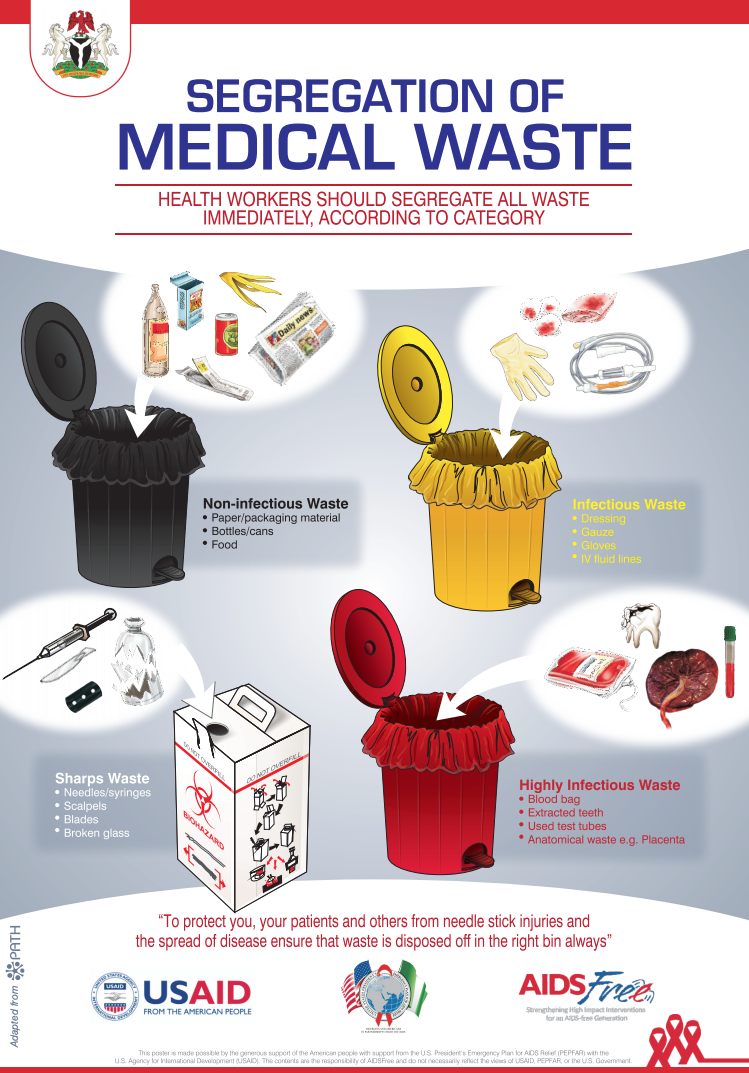Specialist Medical Waste Disposal Services: Ensuring Compliance and Safety
Specialist Medical Waste Disposal Services: Ensuring Compliance and Safety
Blog Article
Navigating Medical Garbage Disposal: Essential Providers for Health Care Facilities
Health care facilities, whether big hospitals or little facilities, are left with the responsibility of handling, treating, and disposing of a broad array of medical waste streams. Recognizing the crucial services that support medical waste disposal is not simply an issue of conformity however also a fundamental part in guarding public wellness and environmental well-being.
Regulatory Compliance Assistance
For medical care facilities, guaranteeing governing conformity assistance is important to maintain proper handling and disposal of clinical waste. Following guidelines set forth by companies such as the Environmental Security Agency (EPA) and the Occupational Security and Health Administration (OSHA) is crucial to protect against environmental contamination, shield public health, and avoid prospective lawful repercussions. Regulatory conformity support gives health care centers with support on how to effectively segregate, store, transport, and dispose of various kinds of clinical waste in conformity with regional, state, and federal guidelines. This support consists of assistance in creating and carrying out comprehensive waste monitoring strategies, carrying out regular team training sessions, and executing audits to make sure ongoing compliance. By partnering with governing compliance specialists, medical care facilities can remain up-to-date on progressing guidelines, alleviate dangers associated with improper waste disposal, and inevitably add to a more secure and more lasting environment for all.
Waste Segregation Guidance

Medical care centers have to offer clear standards and training to team on how to segregate waste effectively. This consists of separating general waste from unsafe products such as sharps, contagious waste, pharmaceuticals, and chemical waste. Color-coded containers, tags, and signs are commonly made use of to help in waste partition techniques. Normal audits and tracking of waste segregation procedures are vital to identify any type of concerns and make necessary improvements.
Collection and Transport Providers

Proper collection and transport solutions are essential components of the medical waste disposal procedure in health care facilities. These services make sure that harmful materials are taken care of safely and in conformity with policies to protect both the environment and public health. Medical care centers depend on specialized waste monitoring firms to give reliable collection and transportation services tailored to their requirements.
Medical waste collection involves setting apart different kinds of waste at the point of generation, making use of color-coded containers or bags to differentiate in between basic, harmful, pharmaceutical, and other waste streams. When gathered, the waste is delivered in devoted cars equipped to deal with dangerous materials safely.
Treatment and Disposal Solutions
In the realm of medical garbage disposal for medical care facilities, after the vital phase of collection and transport solutions, the emphasis moves in the direction of implementing reliable treatment and disposal options. Treatment options frequently include processes such as autoclaving, which utilizes vapor under stress to decontaminate the waste. This method is commonly made use of for transmittable waste that needs to be made non-hazardous before disposal. Another widespread treatment approach is incineration, where waste is subjected to high temperatures in controlled settings to decrease its quantity and eliminate microorganisms.
Disposal remedies encompass the last step in the medical waste monitoring process. Recycling and source healing are likewise acquiring traction as sustainable disposal choices for certain types of medical waste materials.
Efficient therapy and disposal remedies are critical in making certain compliance with policies and guarding public health and the atmosphere. Healthcare facilities have to carefully assess and pick suitable visit our website techniques that straighten with their waste management objectives and sustainability initiatives.
Personnel Training and Education And Learning

To successfully manage clinical waste disposal in healthcare centers, thorough staff training and education and learning play an essential duty in making certain adherence to governing needs and keeping a secure setting. Correct training outfits personnel with the expertise and abilities required to take care of various sorts of clinical waste, segregate them appropriately, and package them safely for disposal. By educating staff members on the dangers connected with improper handling of clinical waste, facilities can reduce the chance Check Out Your URL of crashes, contamination, and regulatory infractions.

Final Thought
Finally, medical care centers rely upon necessary clinical waste disposal solutions to ensure regulative conformity, correct waste partition, secure collection and transportation, effective treatment and disposal, along with staff training and education. These services play a critical role in preserving the wellness and safety and security of both health care employees and the general public, highlighting the significance of appropriate management of clinical waste in health care settings.
For healthcare centers, guaranteeing governing compliance assistance is vital to maintain appropriate handling and disposal of medical waste. Waste segregation image source includes classifying different kinds of clinical waste to make sure appropriate handling, treatment, and disposal. This consists of dividing general waste from hazardous products such as sharps, contagious waste, pharmaceuticals, and chemical waste.Clinical waste collection involves segregating different kinds of waste at the point of generation, using color-coded containers or bags to distinguish in between general, dangerous, pharmaceutical, and other waste streams.In the world of medical waste disposal for healthcare centers, after the critical phase of collection and transportation services, the emphasis changes in the direction of applying reliable therapy and disposal options.
Report this page